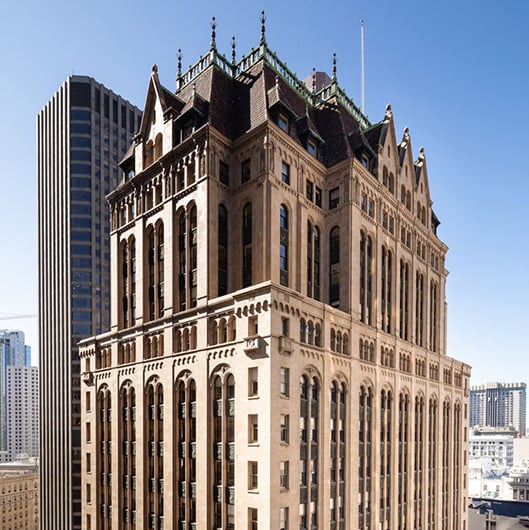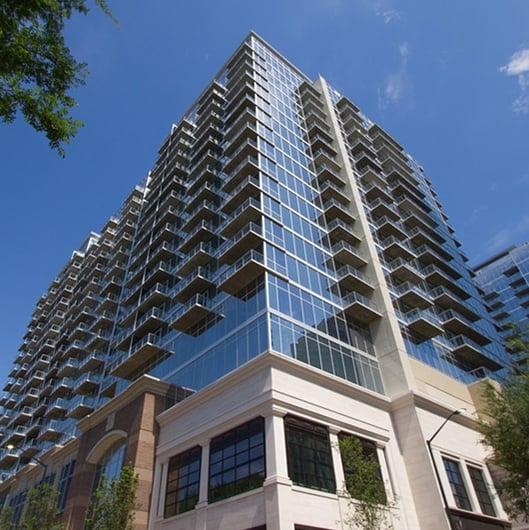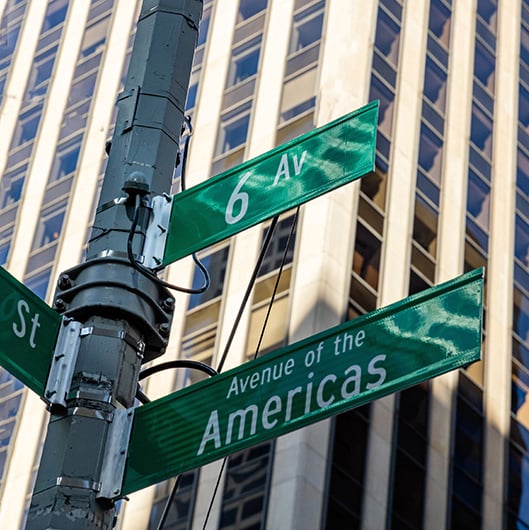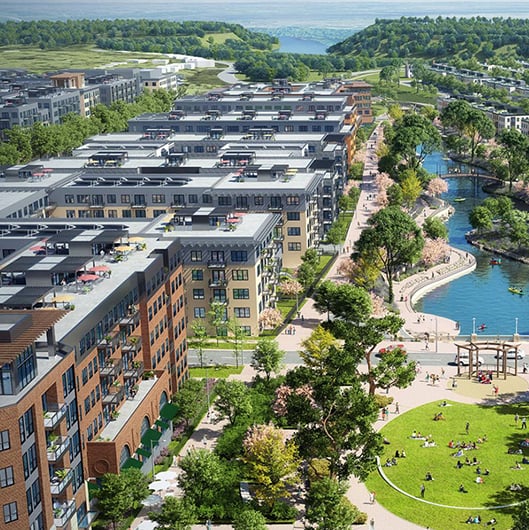73 Tremont
Case Study for 73 Tremont Street
Client:
Colliers
LEED Certification Level:
LEED Gold®
ENERGY STAR Score:
79
Total Square Feet:
300,000+
SIG team members that worked on this project:
Monica Gonzalez, Senior Sustainability Consultant
Jeff Stewart, Mechanical Engineer, ENERGY STAR Team Lead
Scott Baker, Director of Technical Services, PE
Building Address:
73 Tremont Street
Boston, MA 02108

Sustainable Investment Group’s role on this building:
-
LEED® O+M: Existing Buildings
-
Consulting
-
Engineering
Fun Facts
73 Tremont was originally built in 1889. It’s located directly on the Freedom Trail, near the Boston Common and Granary Burying Ground.
Overview
73 Tremont is a Class A office building in the heart of Boston’s Financial District. It is owned by Rosalie K. Stahl Trust, managed by Colliers International, and houses many facilities and offices for Suffolk University, including the school library and café, the University Welcoming Center, staff and graduate offices, the Suffolk television production studio, as well as a Citizen’s Bank. 73 Tremont earned LEED® Gold in the Existing Building Operations and Maintenance rating system.
When Sustainable Investment Group (SIG) starts a new project, we take a bird’s eye view and tackle the big rocks first. During the design charrette, we analyze the regional priority credits and use them to guide our priorities. 73 Tremont earned two unusual regional priority credits: SSc2 for Building Exterior and Hardscape Management and MRc7 Solid Waste Management of Ongoing Consumables.
For the average office building in the suburbs, these credits don’t carry a lot of weight. However, Boston’s super-dense urban waterfront necessitates a more delicate approach to potential flotsam and jetsam from every day activities. Whatever wastewater or debris leaves the site quickly finds its way into Boston Harbor.
The crux of LEED hardscape management is avoidance of hazardous chemical runoff from routine cleaning. Safe chemical management requires diligent control and awareness of window washing contractors and sidewalk cleaning. It is a great responsibility for the property management team, and is completely manageable with regular staff training and reporting transparency.
The most common mistake in chemical selection is the false belief that since Dawn dish washing liquid is safe for marine animals, it should be safe for soil and water. Per LEED’s user-approved requirements, Dawn is not a least toxic cleaning chemical. When selecting hardscape cleansers, be sure to always look for the GreenSeal certification mark to guarantee no harm to soil and water quality. And when contractors do work on your property, ask for a chemical list prior to their arrival on site, so it can be cross-checked with the LEED-recommended products.
Whereas SSc2 is mostly dependent on the property manager’s responsibility, MRc7 is almost entirely dependent upon the occupants’ participation. SIG’s collaboration on effective signage and creative tenant engagement programs sustain this building community’s efforts to achieve high recycling rates.
Not only do tenants at 73 Tremont recycle over 50% of all waste, they also love to use an alternative commute. The project maxed out the 15 points available for green transportation habits. SIG’s energetic team of consultants rally together to collect and compile extensive user data on transportation habits. The Collier team provides infrastructure support.
Who else is hard at work making this building worthy of LEED® Gold? The facility engineering team has committed to a multi-year investment in energy management programs led by SIG’s engineering team. The initial Level I ASHRAE audit revealed a potential to save 20% of total energy costs by implementing all recommended energy conservation measures. For a 300,000+sf building, 20% utility cost savings adds up to serious dollars.
The best news is that implementing the full recommendation list payback entirely in operating savings of less than two years! The energy management scope will continue through the 5-year recertification by implementation of all no- and low-cost operational improvements.



